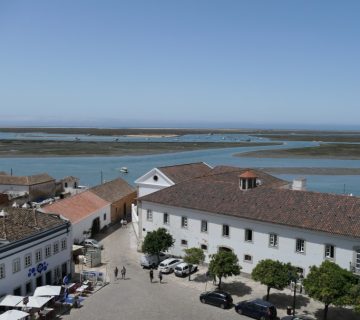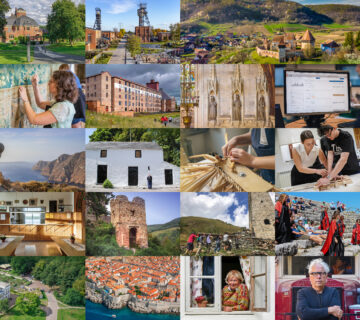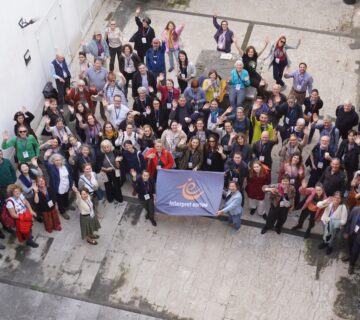This year, Europa Nostra’s European Heritage Congress took place in Madrid and brought together hundreds of heritage stakeholders and interested citizens to celebrate outstanding heritage achievements and highlight the importance of safeguarding Europe’s cultural heritage.
Hundreds of heritage professionals, volunteers and supporters from all over Europe came together in Madrid from 22 to 27 May 2016 for this year’s European Heritage Congress to promote heritage achievements and discuss ways to further protect Europe’s cultural heritage. High-level representatives of EU institutions, Member States and this year’s host country, Spain, joined the celebration of cultural heritage, which is organised annually by Europa Nostra, the pan-European federation of heritage organisations.
Taking place shortly after the European Commission’s announcement to hold the European Year of Cultural Heritage in 2018, the Congress also provided a unique platform for all participants to discuss how civil society organisations like Europa Nostra could help make this Year a success. ‘At a time when the European Union is confronted with many political, economic and social challenges, this initiative has a very special meaning. Cultural heritage, indeed, connects people across generations and across borders, generates economic growth and fosters social inclusion. Europa Nostra is fully committed to contributing to the implementation of this momentous Year with expertise and creativity’, affirmed Europa Nostra’s President Plácido Domingo.
The absolute highlight of the Congress was the ceremony of the EU Prize for Cultural Heritage / Europa Nostra Awards that was held in the historic Zarzuela Theatre in Madrid on 24 May. This year, 28 winners from 16 different countries were rewarded for their outstanding achievements in the categories of conservation, research, dedicated service and education, training and awareness-raising. Tibor Navracsics, EU Commissioner for Culture, and Maestro Plácido Domingo, President of Europa Nostra, who co-hosted the ceremony, presented the seven Grand Prix winners from Bosnia and Herzegovina, Finland, Greece, Italy, Serbia and the United Kingdom, showcasting the diversity of Europe’s cultural heritage. Both a prestigious Grand Prix and the Public Choice Award was given to the rehabilitation of The King’s Little Pathway in Malaga, Spain.
As the Congress also coincided with the 40th anniversary of Hispania Nostra, the host country had many reasons to celebrate its rich cultural heritage. The day before the awards ceremony, a special photo exhibition dedicated to all the Spanish winners of the European Heritage Awards since their creation in 1978 was opened by H.M. Queen Letizia of Spain, Honorary President of Hispania Nostra, at the College of Architects in Madrid.
Heritage experts and professionals as well as volunteers and officials from Spain, Europe as a whole and Latin-America discussed ‘Social participation in heritage protection’ during a full-day forum on 25 May. Europa Nostra’s General Assembly subsequently adopted the Madrid Manifesto which calls for reinforcing civil society organisations as actors of heritage protection.
Besides celebrating heritage achievements, the European Heritage Congress provides an excellent opportunity for stakeholders from the wider field of cultural heritage to engage in lively discussions, exchange best practices and network with colleagues from across Europe. Save the dates for the next congress taking place in Turku, Finland, in June 2017 and for our Cultural Heritage Summit in Berlin in May/June 2018. We are looking forward to seeing you there!
Sneška Quaedvlieg-Mihailović is Secretary General of Europa Nostra, the citizens’ movement for the safeguarding of Europe’s cultural and natural heritage. You can reach her at Europa Nostra’s International Secretariat in The Hague, The Netherlands: info@europanostra.org.
To cite this article:
Quaedvlieg-Mihailović, S. (2016) ‘Europa Nostra’s European Heritage Congress 2016 in Madrid ‘. In Interpret Europe Newsletter 2-2016, 14
Available online:
https://www.interpret-europe.net/fileadmin/Documents/publications/Newsletters/ie-newsletter_2016-2_summer.pdf




